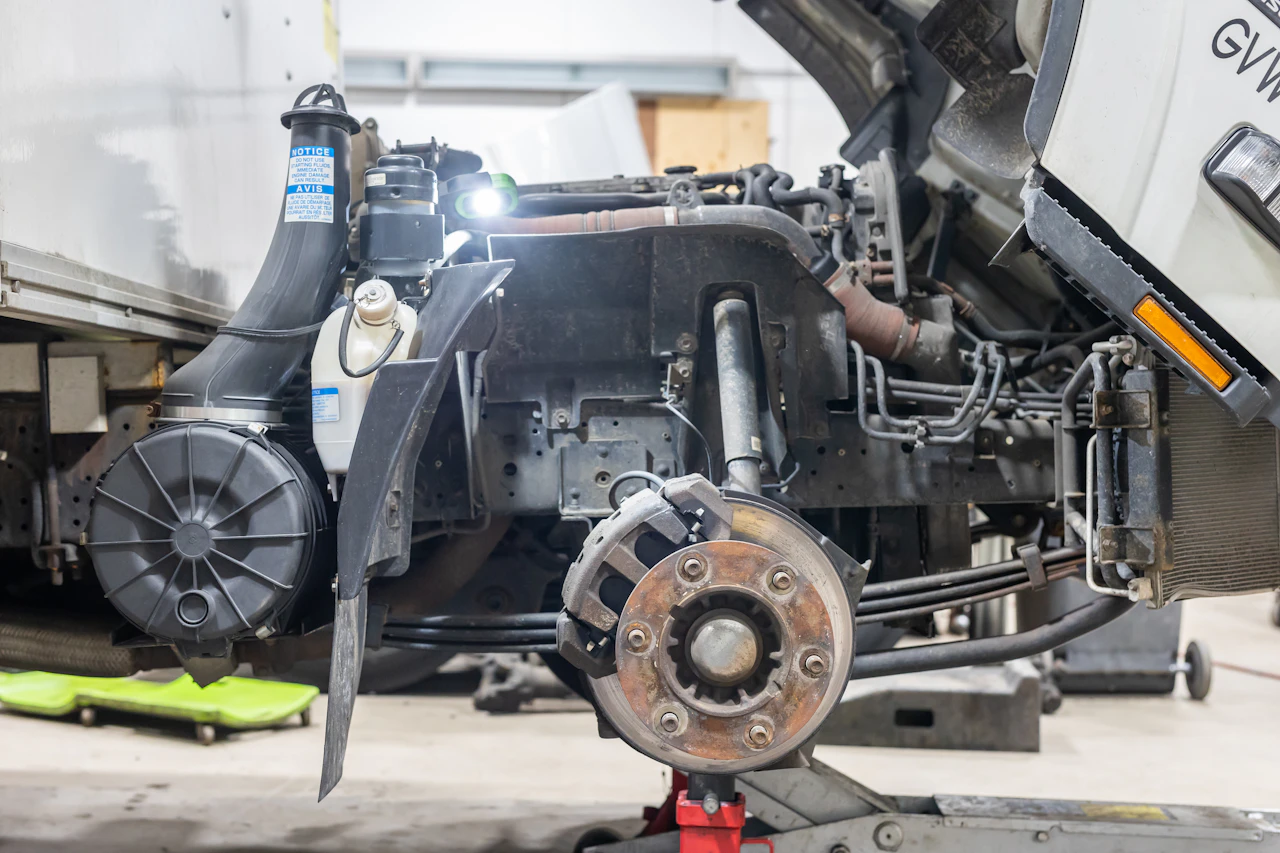Like all systems within heavy-duty trucks, coolant systems can be plagued with a range of problems. If they’re not at their best, then this can have devastating consequences for the truck’s engine, including catastrophic damage. It can lead to unscheduled downtime, disrupt your operations, and blow a hole in your budget.
Being able to recognize when your cooling system is acting up is key to safe, efficient, and cost-effective performance on the road. In this guide, you will find seven of the most common coolant system issues and how to solve them, keeping your engine at optimal temperatures.
1. Overheating
Problem Description
The main concern with a coolant system failure is overheating, which can lead to severe engine problems and damage. Low coolant levels, a malfunctioning radiator, or a compromised cooling system can all cause this.
Solution
Make sure that you routinely monitor your coolant levels. Carry out flushes and refills at manufacturer-recommended intervals. Periodically inspect the radiator and coolant system for any signs of wear or damage. Establishing a routine inspection schedule can prevent overheating issues before they escalate.
2. Coolant Leaks
Problem Description
Leaks, caused by wear and tear on components such as hoses, radiators, and the water pump seriously impact the cooling system’s effectiveness.
Solution
Regular inspections can help identify puddles of coolant (usually a bright green color), underneath your vehicle and around the cooling components. Tightening all fittings and replacing worn hoses can go a long way toward preventing leaks. Always use high-quality parts that meet or exceed OEM standards to improve the longevity of your cooling system components.
3. Thermostat Failure
Problem Description
The thermostat regulates the engine temperature, and its failure can lead to overheating or excessive cooling.
Solution
Test the thermostat regularly to make sure it works as it should, especially before and after the changing of the seasons, when temperature fluctuations are most significant. Replacing an old or malfunctioning thermostat can improve engine efficiency and prevent potential overheating issues.
4. Clogged Cooling System
Problem Description
Sediment, debris, rust, and other contaminants can accumulate in the cooling system, obstructing coolant flow and weakening the system's effectiveness.
Solution
Flushing the cooling system at manufacturer-recommended intervals and using distilled water and the appropriate coolant mixture can minimize the risk of sediment build-up. Installing a coolant filtration system to capture debris before it can accumulate and cause clogs is also another preventive step we recommend.
5. Corrosion and Scale Buildup
Problem Description
Corrosion and scale can erode cooling system components, leading to leaks and reduced cooling efficiency.
Solution
Use a coolant with anti-corrosive properties and adhere to the correct coolant-water ratio as recommended by the vehicle manufacturer. Regular coolant testing can identify pH imbalances early, allowing for corrective measures before extensive damage occurs.
6. Faulty Water Pump
Problem Description
The water pump circulates coolant throughout the engine. A failure can stop this circulation, causing the engine to overheat.
Solution
Listening for unusual noises or checking for coolant leaks around the water pump can help detect early signs of failure. Replacing the water pump before it fails completely can prevent catastrophic engine overheating. Invest in a high-quality water pump to provide durability and reliability.
7. Air in the Coolant System
Problem Description
Air pockets in the coolant system can reduce cooling efficiency, leading to engine hot spots and overheating.
Solution
Properly bleeding the system to remove air after any coolant system service is vital for maintaining optimal cooling. Make sure that all repairs and maintenance work on the cooling system includes a thorough bleeding process that can prevent air lock and the associated overheating risk.
Extra Cooling System Tips
Preventive Maintenance and Regular Checks
Creating and sticking to a preventive maintenance program is key to avoiding cooling system problems. This includes routine inspections of the radiator, hoses, and connections for signs of wear or damage. Regular coolant analysis can also detect chemical imbalances or contaminants that may lead to corrosion or cooling inefficiency.
Keeping a detailed maintenance log or investing in fleet maintenance software can help track the health of the cooling system over time, making it easier to predict and prevent potential failures.
Choosing the Right Coolant and Additives
Selecting the appropriate coolant and additives is crucial for the long-term health of your cooling system. Switching your coolant between seasons to one that is specifically formulated for these particular temperatures can go a long way toward maintaining your system’s effectiveness, no matter the conditions outside. Specific additives can address issues like scale buildup and corrosion, enhancing the coolant's protective qualities.
Seeking Professional Help
Sometimes, the best course of action is to call in the professionals. If there's a clear issue that you cannot handle, then seek out a shop that offers professional cooling system repairs and maintenance. This way, you will have peace of mind when you hit the road next, knowing that the experts have handled your cooling system.
Conclusion
Effective maintenance of the coolant system is essential for the operational efficiency and longevity of heavy-duty vehicles. Fleet managers and truck owner-operators are encouraged to adopt a proactive approach to coolant system care, leveraging the detailed insights and solutions provided in this guide. Regular maintenance, combined with the right products and practices, can significantly reduce the risk of coolant system failures, ensuring your fleet operates smoothly and efficiently.

